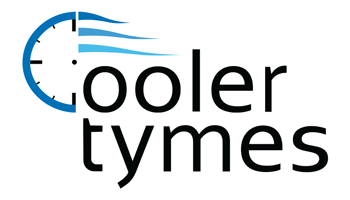
Have you ever performed a double take when you took a look at your last energy bill? While high energy bills can be the end result of severe weather conditions, persistently high bills can quickly indicate an inefficient HVAC system or your home is using too much energy because of other means, such as drafty windows or poor insulation.
One of the simplest ways to figure out whether your home is using too much energy is by calling a home service professional to carry out a home energy audit, also known as a home energy assessment. Keep reading to learn all about home energy audits, including what they are and their benefits.
What Is a Home Energy Audit?
An energy audit is a comprehensive inspection of how much energy your home uses and whether – and where – your home could be losing or wasting energy. An inspector will go through past energy bills in the course of an energy audit to figure out where energy is being wasted and how much.
The general goal of an energy audit is to help homeowners save money on their energy bills by suggesting energy-efficient renovations, which can include swapping out your current HVAC system, installing new insulation, sealing up leaks, or replacing drafty windows.
During the energy assessment, the auditor also completes an inspection of the outside and inside of your home. The auditor performs a blower door test on doorways, windows and fireplaces to find out if there are air leaks in your home. They’ll also check your home’s HVAC system, including the ductwork, the water heater, and the insulation in your attic. Comprehensive assessments might also include reviewing your current lighting system.
Benefits of a Home Energy Audit
It can be tough for the ordinary homeowner to be sure how efficient their home is versus other similar homes in their neighborhood. However, local energy companies often supply information about where your home stands in comparison to similar homes and whether it’s more efficient, about average, or inefficient compared to your neighbors’ homes. This is a great starting point to figure out if you need an energy audit scheduled.
A few of the benefits of a home energy audit include:
Understanding How Efficient Your Home Is
It’s beneficial to learn more about how efficient your home is and where you’re using up the most energy. For example, if your ducts are damaged, it could lead to a sizable increase in your energy bills and increased wear and tear on your HVAC system since it has to work longer to completely heat or cool your home.
Making Energy-Efficient Upgrades
An energy audit should outline where you need to make energy-efficient changes to cut back on energy and decrease utility bills. This may include replacing old weatherstripping or buying a new energy-efficient furnace.
Enhancing Health and Safety
Allowing air to seep into your home through doors and windows, or due to a lack of insulation can cause unwanted moisture to form, which could negatively affect your home’s humidity levels or encourage mold. This can exacerbate health issues, especially for people suffering from asthma or allergies.
Increasing Your Home’s Retail Value
Energy-efficient homes are desired by homebuyers. You can sell your home much faster or for more money by demonstrating to potential buyers that it’s energy efficient.
How to Perform an Energy Audit of Your Home
Although handling an energy audit independently might not be as thorough as choosing a professional, it’ll give you a generalized understanding of how energy efficient your home is. If you don’t find any problems during the DIY test, then you probably don’t need to bring in a professional. Use this step-by-step checklist:
- Examine your HVAC system. Leaky ducts can lose as much as 20% of conditioned air, resulting in more expensive energy bills and greater strain on HVAC equipment. If you find leaks, use duct tape to seal them. If your HVAC equipment is old and wearing down, upgrading to a new system can save you a considerable amount on your energy bills. In some cases, it might be better to call a reputable HVAC company to inspect your system.
- Look for air leaks. Air leaks on average can increase monthly energy bills by 10 to 20%. Inside, look for air leaks in areas where there could be a draft, such as along the edge of flooring and along baseboards and electrical outlets. Outside, you can look for air leaks around the home’s foundation, siding and mortar. Plug, caulk or seal any air leaks to save money.
- Examine insulation. If your home is older, it could mean your insulation is too. If you can see the joists, you likely need more insulation.
- Check ventilation. Check that all of your kitchen and bathroom exhaust fans are working properly, and look for evidence of rot or moisture.
Contact Cooler Tymes LLC for a Professional Energy Audit
If you are interested in professional help finding out how energy efficient your heating and cooling equipment is, call the HVAC professionals at Cooler Tymes LLC today. We’ve proudly served the residents of Litchfield Park with quality home services for years. Contact us today to set up an appointment.
